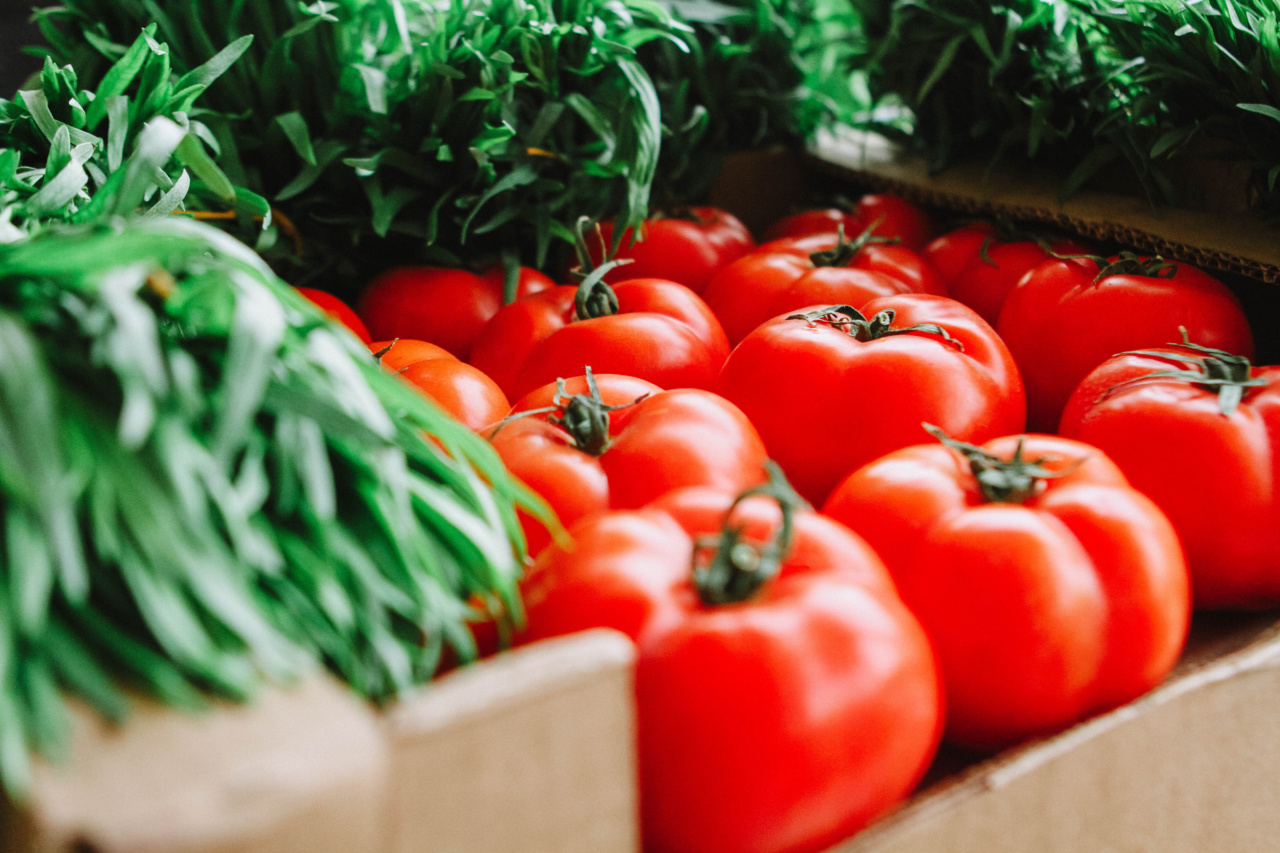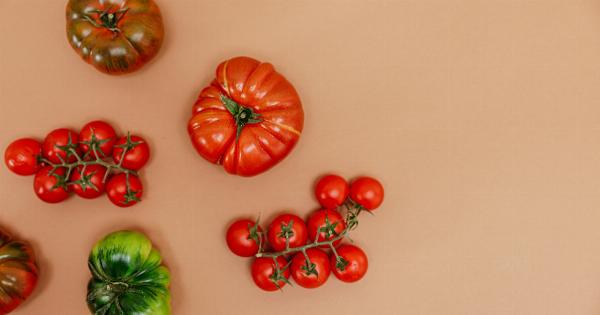Tomatoes are a staple ingredient in many dishes, but did you know that they are particularly sensitive when it comes to storage? Placing tomatoes in a box might seem like a convenient way to keep them organized and easily accessible, but it can actually lead to their quick deterioration. In this article, we will explore why you should avoid putting tomatoes in the box and what alternatives you can use to ensure the longevity and quality of these delicious fruits.
The Vulnerability of Tomatoes
Tomatoes have a delicate structure that makes them prone to damage and spoilage. They are highly perishable and require special care to maintain their freshness. One of the main factors that contribute to their vulnerability is their high water content.
Tomatoes are made up of approximately 95% water, which makes them more susceptible to bruising and rotting.
Impact of Box Storage
When tomatoes are stored in a box, several issues can arise that accelerate their deterioration. Firstly, boxes often lack proper ventilation. Without adequate airflow, tomatoes can become moist and develop mold or rot.
The moisture trapped inside the box can also lead to the growth of bacteria, further compromising the quality of the tomatoes.
Additionally, when tomatoes are stacked in a box, the weight of the upper layers can cause compression and bruising. As tomatoes are fragile fruits, even slight pressure can result in bruised or damaged spots.
These injuries not only affect the appearance of the tomatoes but also lead to faster spoilage.
Furthermore, the lack of protection provided by a box makes it easier for tomatoes to come into direct contact with one another.
This contact can cause abrasions and punctures, providing entry points for microorganisms and speeding up the decay process.
Alternative Storage Options
To avoid the negative consequences of box storage, consider the following alternative methods:.
1. Countertop Storage
Tomatoes can be stored at room temperature, on a countertop or any dry surface. Make sure to place them in a single layer to avoid unnecessary pressure that could lead to bruising.
This method is suitable if you plan to consume your tomatoes within a few days.
2. Refrigerator Storage
If your tomatoes are ripe and you want to extend their freshness, refrigerating them can be an option. However, keep in mind that the cold temperature inside the refrigerator can affect the flavor and texture of tomatoes.
Store them in the crisper drawer, away from other fruits and vegetables to prevent ethylene gas exposure, which can promote ripening.
3. Paper Bag Storage
Using a paper bag is an excellent way to store tomatoes as it helps to absorb excess moisture while still allowing for some airflow.
Place the tomatoes in the bag, fold the top loosely to allow ventilation, and store them in a cool, dark place away from direct sunlight.
4. Freeze for Longer Shelf Life
If you have an abundance of tomatoes and want to preserve them for an extended period, freezing is an ideal option. However, note that freezing alters the texture of tomatoes, making them less suitable for fresh consumption.
Frozen tomatoes are best used in cooked dishes or sauces.
Why Fresh Tomatoes Are Worth Preserving
Preserving the quality and freshness of tomatoes is crucial not only for their taste but also for their nutritional value.
Fresh tomatoes are packed with essential vitamins, including vitamin C, A, and K, as well as minerals such as potassium and folate. They are also abundant in antioxidants and lycopene, known for their health benefits, including reducing the risk of chronic diseases.
Conclusion
Although putting tomatoes in a box might seem like a convenient storage solution, it can have detrimental effects on their quality and freshness.
Tomatoes are highly sensitive fruits that require proper ventilation, protection from physical damage, and avoidance of excessive moisture. By opting for alternative storage methods such as countertop storage, refrigeration, or paper bag storage, you can prolong the life of your tomatoes and enjoy the maximum flavor and health benefits they offer.































